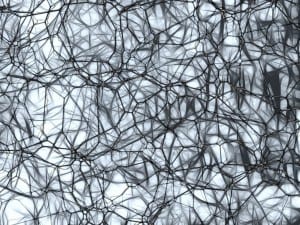Space. Time. Memory.
By Madalina Hanc, on 15 March 2016
 Take a deep breath. Inhale. Exhale. Now think deeply about an event that made you happy. It can be an old or recent memory, it may (or may not) involve people dear to you, or an activity you enjoy – anything goes, as long as the thought of it makes you smile. Try to recall that moment and the feelings it brought to you. Inhale. Exhale. Next, let us try the opposite. This time, think of a sad memory. Again, it can be old or new, a shared or deeply isolated event, but now, the feelings brought to mind may include melancholy, anger or sadness. Inhale. Exhale.
Take a deep breath. Inhale. Exhale. Now think deeply about an event that made you happy. It can be an old or recent memory, it may (or may not) involve people dear to you, or an activity you enjoy – anything goes, as long as the thought of it makes you smile. Try to recall that moment and the feelings it brought to you. Inhale. Exhale. Next, let us try the opposite. This time, think of a sad memory. Again, it can be old or new, a shared or deeply isolated event, but now, the feelings brought to mind may include melancholy, anger or sadness. Inhale. Exhale.
Now let us compare these two memories. When did they happen? Who were you with? What were you feeling? These details may very well be different (and possibly blurred) but you can probably remember where these events happened. Space – familiar space – is present in our memory. With regard to the mental process of reconstructing the past, sociologist Maurice Halbwachs proposed that:
“Never do we go outside space. We find ourselves not within an indeterminate space but rather in areas we know or might very easily localize […]” (1950/1980, p. 157).
Memory may be related to time, space and the social dimensions of life. For centuries, this was an interesting topic of debate for philosophers, artists and scientists, but the science behind these mental processes became clearer in relatively recent times. Advances from neuroscience now suggest that for both humans and animals, episodic memory is supported by “time cells” located in the hippocampal region of the brain – these are neurons that fire at specific moments under otherwise constant conditions. But are space and time ‘coded’ independently by these neurons?
Recently, a team of neuroscientists have examined hippocampal neuronal firing patterns (“time cells”) of rats running on a treadmill under relatively constant behaviour and location conditions; researchers varied the treadmill speed to distinguish the time elapsed from the distance travelled during the experiment. The aim was to reveal if different neurons respond to time and distance (ie. space). Researchers found that “cells significantly influenced by only time and those significantly influenced by only distance regularly fired together […], showing that both time and distance are being represented simultaneously in the hippocampus, and strongly suggesting that the remaining cells are conjunctively encoding both time and distance at all times” (Kraus et al, 2013, pp. 1097). If this is true for humans, space, time and experience are inseparably combined in our capacity for episodic memory.
As Halbwachs had suggested, spaces that are imprinted in our memory – whether built or open, outer or digital space – may be personal perceptions of those spaces, as experienced during a particular time. Science can be found – and done – in all of these spaces, but the biggest challenge is probably to remain open to the idea that space (and time) can be seen in many different ways. Be curious. Experiment. Be open.
References
Maurice Halbwachs, 1980, The Collective Memory, New York: Harper and Row Books. Translated from: La mémoire collective, Paris, Presses Universitaires de France, 1950.
Benjamin J. Kraus, Robert J. Robinson II, John A. White, Howard Eichenbaum, and Michael E. Hasselmo, 2013, Hippocampal ‘‘Time Cells’’: Time versus Path Integration, In: Neuron 78, 1090–1101. http://dx.doi.org/10.1016/j.neuron.2013.04.015
6 Responses to “Space. Time. Memory.”
- 1
-
2
UCL_IEDE wrote on 15 March 2016:
Wonderful new blog from @MadalinaHanc for #BSW16. ‘Space. Time. Memory.’ Read it here: https://t.co/hydd93n6Xz
-
3
MadalinaHanc wrote on 15 March 2016:
RT @UCL_IEDE: Wonderful new blog from @MadalinaHanc for #BSW16. ‘Space. Time. Memory.’ Read it here: https://t.co/hydd93n6Xz
-
4
MadalinaHanc wrote on 15 March 2016:
RT @EllieForward: Great new #BritishScienceWeek blog from @UCL_IEDE’s @madalinahanc ‘Space. Time. Memory’ https://t.co/yj45hpjguF @ScienceW…
-
5
09Clive wrote on 15 March 2016:
RT @UCL_IEDE: Wonderful new blog from @MadalinaHanc for #BSW16. ‘Space. Time. Memory.’ Read it here: https://t.co/hydd93n6Xz
-
6
UCL_Energy wrote on 16 March 2016:
RT @UCL_IEDE: Wonderful new blog from @MadalinaHanc for #BSW16. ‘Space. Time. Memory.’ Read it here: https://t.co/hydd93n6Xz
 Close
Close



Great new #BritishScienceWeek blog from @UCL_IEDE’s @madalinahanc ‘Space. Time. Memory’ https://t.co/yj45hpjguF @ScienceWeekUK #BSW16